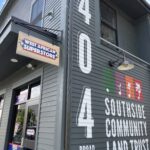
West African Superstore, Rhode Island’s largest African market, has officially enrolled in the state’s innovative Eat Well Be Well program, marking a significant milestone for food access in Providence’s Southside community. Located in the Southside Community Land Trust’s Healthy Food Hub at 404 Broad Street, the superstore serves a neighborhood where up to 86% of residents live in low-income, low food access areas. Owner Luna Walker’s market, which specializes in authentic West African ingredients, imports, and local produce, will now offer SNAP recipients an additional 50 cents in benefits for every dollar spent on qualifying fruits and vegetables, with up to $25 in extra monthly benefits automatically loaded onto their EBT cards.
Rhode Island’s Eat Well Be Well program launched in January 2024 as the first statewide nutrition incentive program of its kind in the United States. The initiative was created to address food insecurity affecting approximately 140,000 SNAP recipients across the state, or roughly 12-13% of Rhode Island’s population. With one in four Rhode Island families with children experiencing hunger, according to the Rhode Island Community Food Bank, the program provides a crucial safety net by making fresh produce more affordable for those who need it most. The pilot program has already demonstrated success, with participants earning about $1.1 million in healthy food incentives during its first six months of operation.
For the West African community in Providence, this enrollment represents more than just expanded access to nutrition benefits; it’s a cultural bridge that honors food traditions while promoting health. Luna Walker’s superstore offers ingredients that are staples in West African cuisine, including fresh okra, leafy greens, herbs, and other produce that forms the foundation of traditional dishes from Nigeria, Liberia, Ghana, and other West African nations. These foods, which are naturally nutritious and qualify for the program’s incentives, can now be purchased with the additional benefit match, making it easier for families to maintain their cultural food practices while stretching their grocery budgets.
Southside Community Land Trust’s Healthy Food Hub, where West African Superstore is located, was specifically designed to bring nutritious, fresh, and culturally appealing food to an area that has long been considered a food desert. The hub houses multiple food businesses, including Black Beans PVD and D’s Spot, creating a vibrant marketplace that serves the diverse needs of the Trinity Square neighborhood. This concentration of healthy food options, combined with the Eat Well Be Well incentives, creates a powerful combination for addressing food insecurity in one of Providence’s most underserved areas.
The program works seamlessly for customers. SNAP recipients receive the incentive automatically at checkout when purchasing eligible fruits and vegetables, with no additional steps required. Qualifying items include fresh fruits and vegetables, herbs, salad kits, edible seeds, and even potted fruit and vegetable plants. The additional benefits are immediately credited to customers’ EBT cards and can be used to purchase any SNAP-eligible item, providing flexibility for families to meet their broader grocery needs.
Luna Walker’s decision to join the program reflects her commitment to serving the community beyond simply providing access to traditional ingredients. By participating in Eat Well Be Well, she’s ensuring that families can afford the fresh produce that forms the backbone of healthy West African cooking, from the leafy greens essential for soups and stews to the fresh peppers and herbs that bring authentic flavors to traditional dishes. This connection between cultural food practices and nutrition incentives creates a unique opportunity for community members to eat well while honoring their heritage.
The enrollment of West African Superstore in the Eat Well Be Well program represents a broader movement toward food justice in Rhode Island. As the state continues to expand the program beyond its initial partners of Stop & Shop and Walmart, the inclusion of smaller, culturally specific markets like the West African Superstore demonstrates a commitment to serving all communities equitably. For Providence’s West African residents, this means that healthy eating doesn’t require abandoning cultural food traditions; instead, the program makes those traditions more accessible and affordable.
Looking ahead, the success of the Eat Well Be Well program at West African Superstore could serve as a model for engaging other culturally specific food retailers across Rhode Island and beyond. As state officials work to ensure the program’s long-term sustainability, the participation of diverse community markets like Luna’s will be crucial in demonstrating that nutrition incentives can work across all communities, honoring cultural diversity while promoting health equity. For the families who shop at West African Superstore, this enrollment means that choosing healthy, traditional foods just became a little easier, and a lot more affordable.
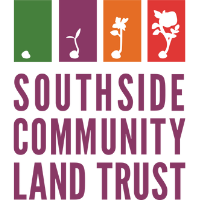
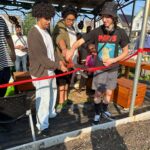
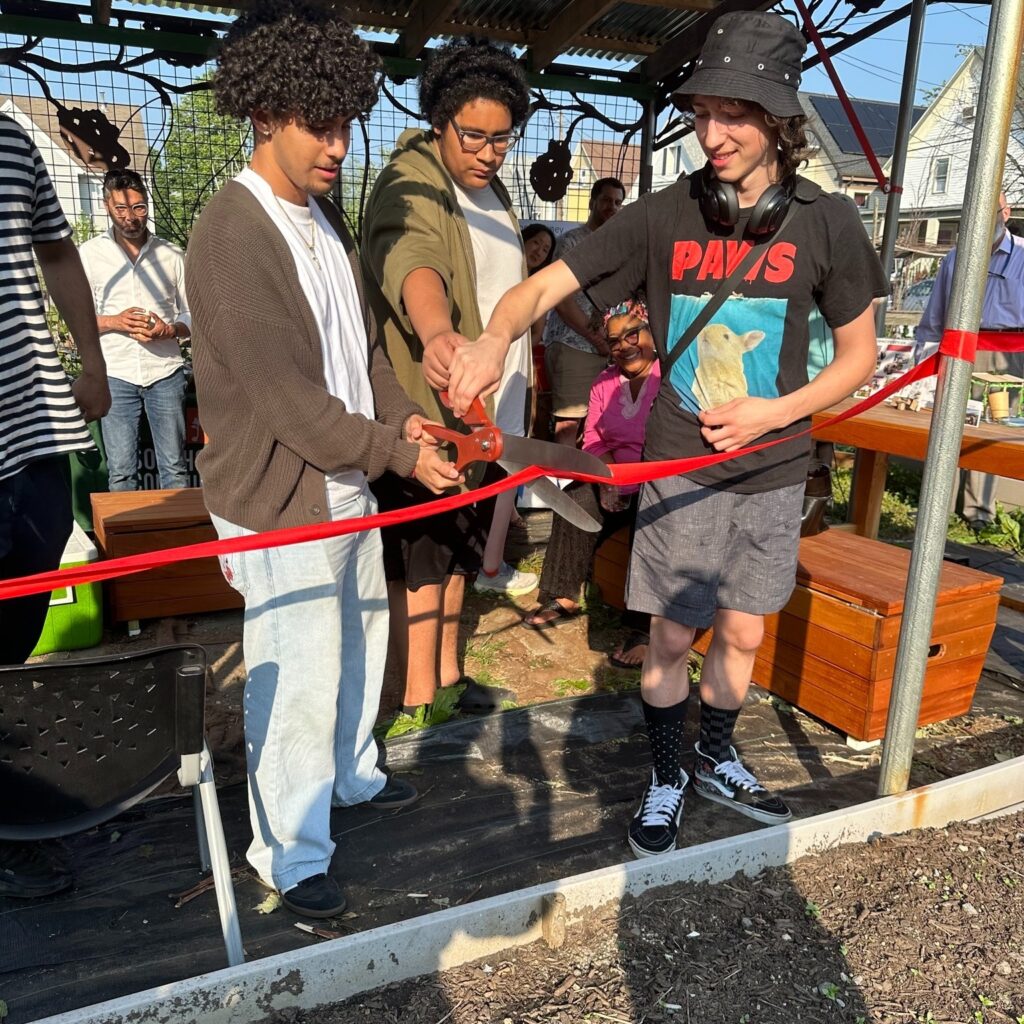
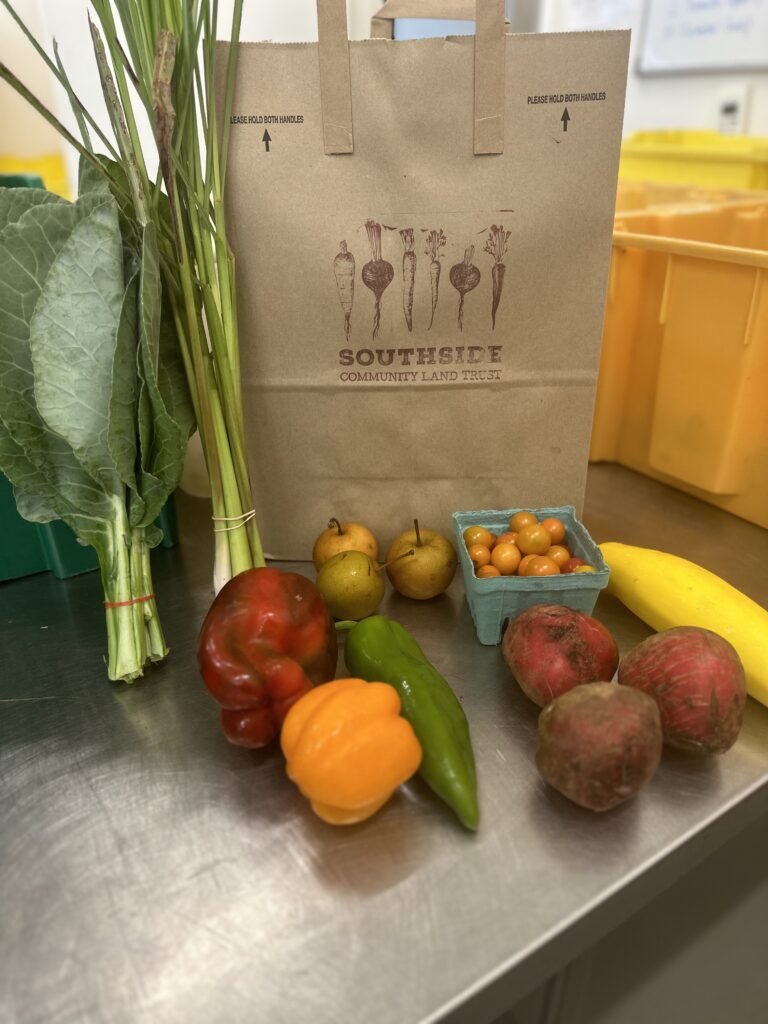 When families hear about an SCLT free farmers market pop-up coming to their neighborhood, they know it’s an opportunity not to be missed. These one-time events bring fresh, locally grown produce directly to communities that often lack reliable access to nutritious food.
When families hear about an SCLT free farmers market pop-up coming to their neighborhood, they know it’s an opportunity not to be missed. These one-time events bring fresh, locally grown produce directly to communities that often lack reliable access to nutritious food.





 A refreshing retail experience has blossomed at SCLT’s
A refreshing retail experience has blossomed at SCLT’s 
